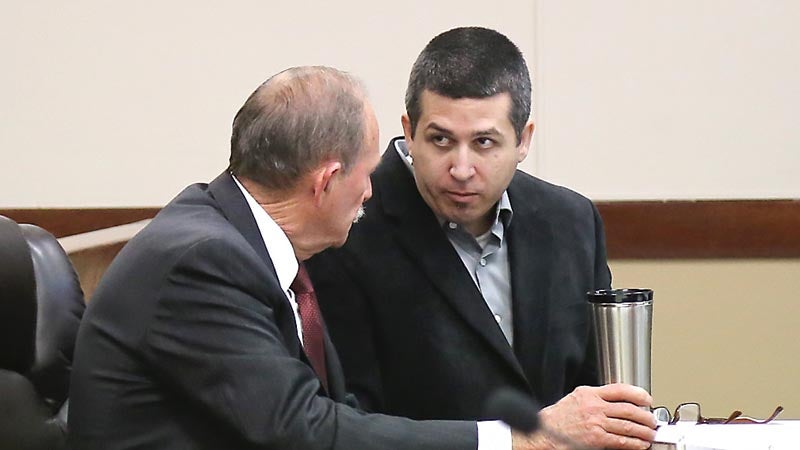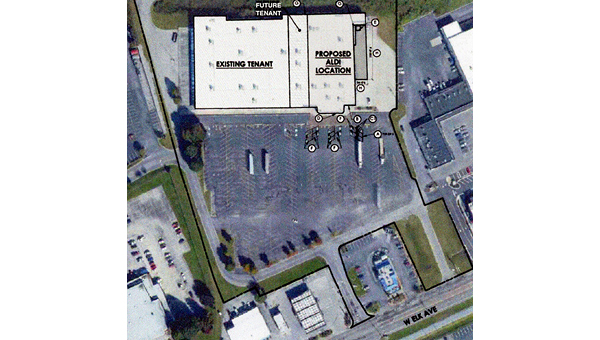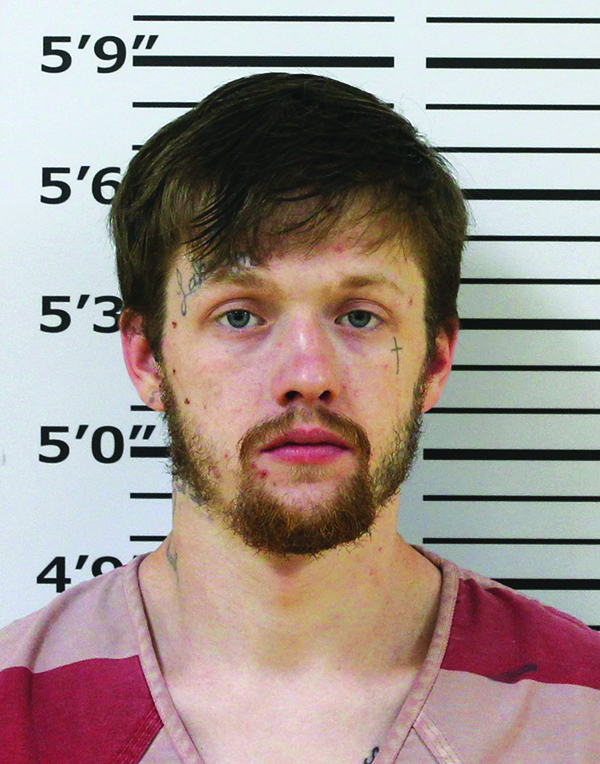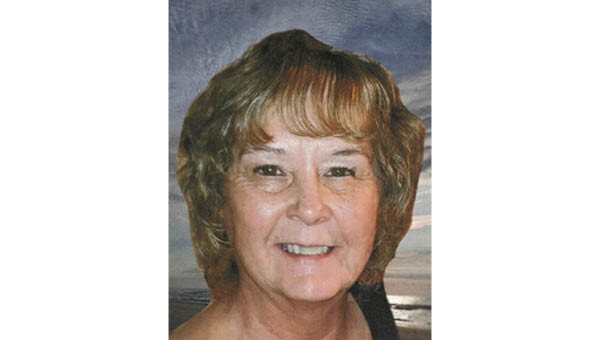Jury seated in double homicide trial, testimony begins Tuesday
Published 4:56 pm Monday, February 5, 2018
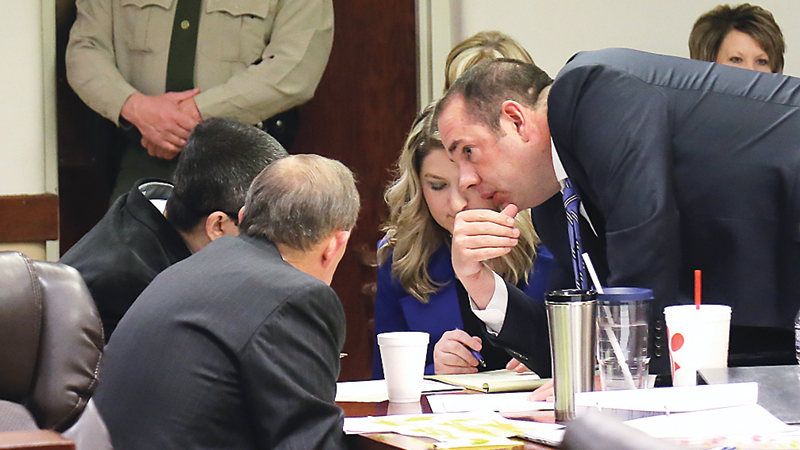
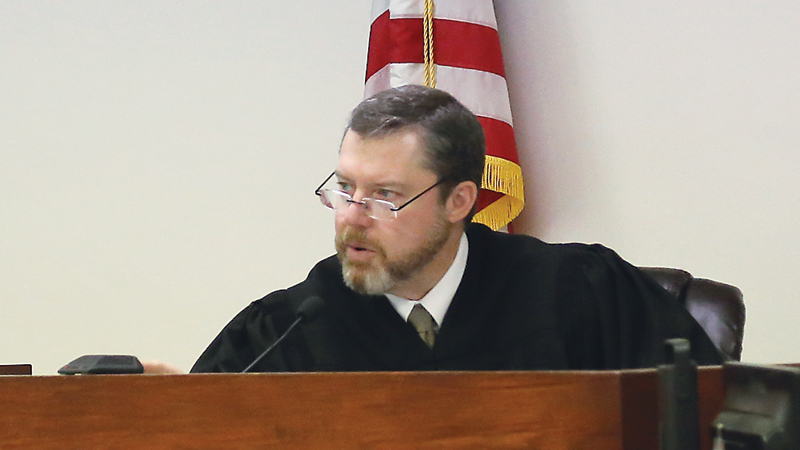
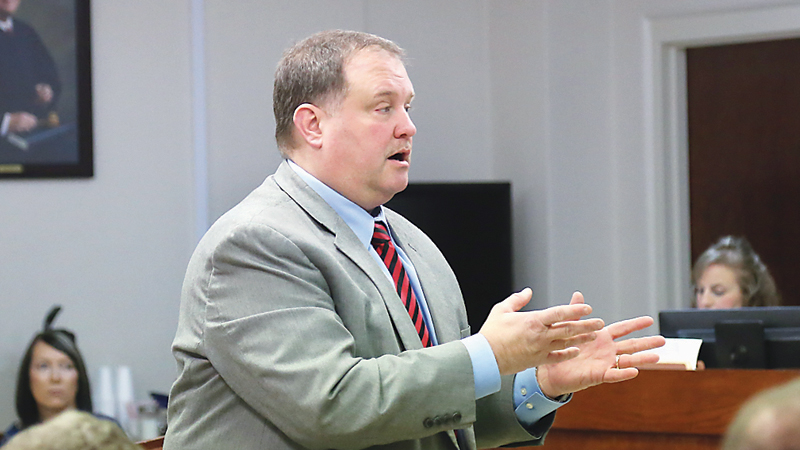

Jury selection began Monday morning in the trial of a Carter County man charged with the murder of a young Sullivan County couple in January 2015.
Eric Azotea, 46, formerly of the Pinecrest community, faces charges of two counts of first-degree murder, two counts of abuse of a corpse, and one count of tampering with or fabricating evidence. The charges stem from an investigation into the 2015 deaths of Arthur Gibson and Amber Terrell. The couple’s dismembered remains were found at Azotea’s residence. The District Attorney’s office is seeking the death penalty against Azotea in the case.
Over the course of three days last week, hundreds of potential jurors were called to the Carter County Justice Center to undergo individual voir dire for jury selection. “Voir dire” is a legal term for the process by which prospective jurors are questioned about their backgrounds and potential biases before being chosen to sit on a jury. During the process, attorneys representing both the State and the defendant ask potential jurors questions — such as if they know any of the people involved in the case or if they have followed media accounts of the crime — to determine if the potential juror has any pre-existing bias or knowledge that would prevent them from remaining impartial during the trial. Throughout the process, the attorneys select, or perhaps more accurately reject, certain jurors to hear the case.
Trending
Because the State is seeking the death penalty in the case against Azotea, the prospective jurors were also asked their thoughts and opinions regarding the death penalty.
At the end of the three days, a pool of “death penalty qualified” jurors was formed. It was from that pool of potential jurors that jury selection took place on Monday morning.
During the proceedings Monday morning, potential jurors were again asked if they knew any of the individuals involved in the case. District Attorney General Tony Clark read off the list of more than 20 potential witnesses which the State might call upon to testify during the trial. That list included several law enforcement officers from the Carter County Sheriff’s Office, which handled the murder investigation, as well as an officer of the Sullivan County Sheriff’s Office where Terrell and Gibson were first reported missing. Also on the list were several agents from the Tennessee Bureau of Investigation as well as other individuals not affiliated with law enforcement.
Among those expected to testify during the course of the trial is Kristen Jones, who was the live-in fiancée of Azotea at the time the murders allegedly took place. Following his arrest, Azotea reached an agreement with investigators and the District Attorney’s Office which granted Jones immunity from prosecution in exchange for his confession.
During motions hearings held before the start of the trial, Azotea’s defense team sought to suppress that confession to keep the State from presenting it as evidence, but Criminal Court Judge Stacy Street denied their request.
During the jury selection process, the District Attorney’s Office and attorneys for the defense are granted a number of challenges to have a potential juror removed from the panel.
Trending
After several rounds of challenges, a jury was finally selected around 1:30 p.m. on Monday. The panel consists of 16 jurors — 10 women and six men. At the end of the trial, four members of the panel will be drawn as alternates, and the remaining 12 will enter deliberations.
Because of the large volume of media coverage surrounding the arrest and court case of Azotea, the jury will be sequestered for the duration of the trial, which is expected to last two weeks. The jurors were allowed to return home Monday afternoon to collect clothing, medications, and other items they might need during the sequester. The panel was instructed to report to their designated hotel by 9 p.m. Friday, at which time they would be required to turn over their cell phones to officers.
At this time, members of the jury will only be allowed to watch Netflix while sequestered at the hotel. Street said he would attempt to work out something that would permit them to watch the Olympics if they desired.
Before releasing the jury for the day, Street told them the court would attempt to keep the trial proceedings moving as quickly as possible and said he understood the imposition being caused on them by the sequester.
“We will try to meet every need that you have,” Street said. “We are really infringing on your lives.”
After the jury was released for the day, Azotea’s attorney Gene Scott informed the court that the defense has an objection to one of the photographs the State wished to present to the jury, which Scott said depicted the severed head of Gibson.
“We understand some particularly gruesome photos are going to come into this trial, but we feel this one goes above that,” Scott said.
According to Scott, there is a similar photo which the State has that the defense does not object to.
Assistant District Attorney General Dennis Brooks told the court the photo being objected to by the defense shows Gibson’s head and depicts a missing tooth, which Brooks said was important for purposes of identification in proving it was Gibson.
Scott stated there is no argument as to whose remains were found at the home so the photograph would not be necessary to identify the remains.
Street said he would sustain the defense’s objection to the photo subject to any identification issues. If the question is raised regarding the identity of the remains, Street said he would revisit the issue at that time and might change the ruling and allow the photograph to be entered into evidence.
The trial will begin Tuesday morning with opening statements by both the State and the defense.





